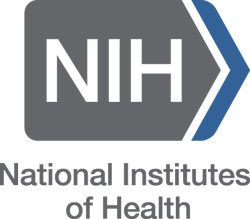 On Thursday April 10th, I'll be participating in The Drama of DNA workshop co-hosted by the National Human Genome Research Institute of the National Institutes of Health and the Smithsonian Associates. "The purpose of this workshop is to generate dialogue about the intersection of science and the theatrical arts among participants with interest and expertise in science, medicine, bioethics, policy, education and the theatrical arts. The workshop will also seek to stimulate a community of playwrights and theatre professionals interested in engaging with scientists to encourage public discourse on issues related to biomedical research and genomics." said Karen Rothenberg, J.D., M.P.A. Senior Advisor on Genomics and Society to the Director, National Human Genome Research Institute I’ll be joined by D.C. area playwrights Renee Calarco, Joshua Ford, D.W. Gregory, Ron Kampeas, David Robinson, Ari Roth, John Strand, Gwydion Suilebhan, Richard Washer, Irene Wurtzel, and Laura Zam. Here's the agenda: Panel 1: Uncovering the Drama in Science Moderated by Karen Rothenberg with panelists: Dorothy Fortenberry, Lisa Loomer, Cassandra Medley, Ari Roth, Anna Ziegler. This panel will explore the interest of playwrights and theatre professionals in genomics, the process of writing in this area, and the challenges involved in creating and producing theatre related to genomics. Panel 2: Real‐life Drama and the Future of Genomics Moderated by Lawrence Brody with panelists: James Evans, William Gahl, Sara Hull, Philip Shaw. This panel will focus on the drama involved in the clinical and research use of genomics, including discussion of case studies and emerging trends in genomics. Discussion: Fostering a Dialogue between the Arts and Sciences Moderated by Vence Bonham, this open discussion will address ways to encourage the greater interaction between the arts and sciences and the use of theatrical arts as a means of promoting public discourse related to scientific. The Drama of DNA: Genomics in Performance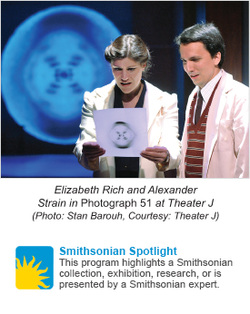 Later that evening from 7:00pm to 8:30pm, there will be a special program entitled, “The Drama of DNA: Genomics on Stage,” at the Smithsonian’s Dillon Ripley Center. Featuring excerpts from four contemporary playwrights dealing with genomic themes, this performance is open to the public and part of the ongoing educational outreach for the “Genome: Unlocking Life’s Code” exhibit at the Museum of Natural History. Click here to purchase your tickets. Uncovering the human genome more than a decade ago led to a range of questions about the complexities, realities, and implications of what this information holds. Several contemporary playwrights have used theatre to examine the ethical, legal, and social issues that genomics introduced into our lives, as well as to stimulate conversations about biomedical research. Join playwrights Dorothy Fortenberry (Good Egg), Lisa Loomer (Distracted), Cassandra Medley (Relativity), and Anna Ziegler (Photograph 51) as they discuss why and how they transformed complex topics rooted in genetics—including issues of identity, the power of genetic information, and the impact of health decisions on family dynamics—into compelling theater. Staged readings of scenes from their plays are presented by Ari Roth, artistic director of Washington's Theater J, and directed by Shirley Serotsky, associate artistic director of the company, where Photograph 51 was produced in 2011. The program is moderated by Karen Rothenberg, senior advisor to the National Human Genome Research Institute Director on Genomics and Society, the Marjorie Cook Professor of Law at the University of Maryland, and co-author of the forthcoming book, The Drama of DNA. She and the playwrights are joined by James Evans, Bryson Distinguished Professor of Genetics and Medicine at the University of North Carolina at Chapel Hill’s School of Medicine and editor-in-chief of Genetics in Medicine, for a conversation on how the artistic and scientific communities can create dialog around genomics and biomedical research. Synopsis of the Plays Dorothy Fortenberry, The Good Egg For as long as she can remember, Meg has been taking care of her younger brother Matt – through their childhoods, after their parents died, and especially after his diagnosis of bipolar disorder. Now in their twenties, Meg and Matt live together in Washington, DC, where she’s a Congressional researcher, and he’s a freelance web designer. She’s organized, he’s chaotic. She’s tidy, he’s creative. And she’s getting pregnant – with the help of a sperm donor and IVF. The play takes place on the night before her in vitro embryos undergo genetic testing, a procedure known as Preimplantation Genetic Diagnosis or PGD. Matt's discovery that Meg plans to screen her embryos for bipolar disorder sets off a cavalcade of decisions and revelations, and neither sibling will ever be the same. Over the course of the play, the action switches from their apartment to Meg’s womb to Matt’s brain and back, as they struggle with their individual desires and shared need for family. As the night wears on and Matt’s medication wears off, both of them are pushed irrevocably to the limits of unconditional love. 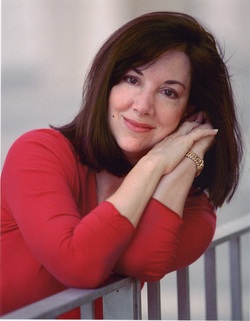 Lisa Loomer, Distracted What’s going on with nine year old Jesse? He can’t sit still, he curses, he raps, you can’t get him into—or out of—pajamas. His teachers think it’s ADD. Dad says, “He’s just a boy!” And Mama’s on a quest for answers. Is it “dysfuncton” or “difference?” And what’s ADD in an ADD world? She consults a psychologist, a homeopath, an environmental physical, a shrink. She talks to neighbors—whose kids have their own diagnoses. A psychiatrist prescribes Ritalin. Throughout, Jesse is an offstage voice, becoming more and more desperate. And will his parents’ marriage survive the quest for a diagnosis? Everyone is distracted‐‐including an actor who can’t stay in character. DISTRACTED is a look at a modern family and an epidemic dilemma: Are we so tuned into our 27/7 info‐rich world that we’ve tuned out what really matters? 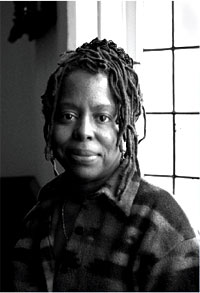 Cassandra Medley, Relativity Kalima, a young, ambitious, up and coming Bio‐geneticist has a beloved mother, Claire, who is celebrated within several small African‐American intellectual circles as a “Melanin Scientist.” Claire is a leading proponent of the belief that “people of color of physically, mentally, emotionally superior to others because of the supposed larger concentration of melanin in their skin. Circumstances force the Kalima to have to decide whether to publicly denouncer her own beloved mother’s lifetime career, and save her own professional reputation, or to hold fast to her mother’s approval, and emotionally sustaining love. A play about melanin, DNA, and family. 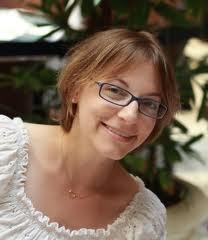 Anna Ziegler, Photograph 51 James Watson and Francis Crick received the Nobel Prize for their work modeling the DNA molecule. But did they steal data from a female colleague and claim credit for themselves? Based on a true story, the provocative Photograph 51 explores sexism, ethics, and scientific collaboration through the recounting of how passionate biophysicist Rosalind Franklin provided the key breakthrough leading to the DNA discovery.
0 Comments
Your comment will be posted after it is approved.
Leave a Reply. |
My BlogI'm a playwright, dramaturg, and teaching artist. It is here where you'll find my queries and musings on life, theater and the world. My posts advocate for diversity, inclusion, and equity in the American Theatre and updates on my own work. Please enjoy!
Categories
All
Archives
June 2020
Reading List
|
